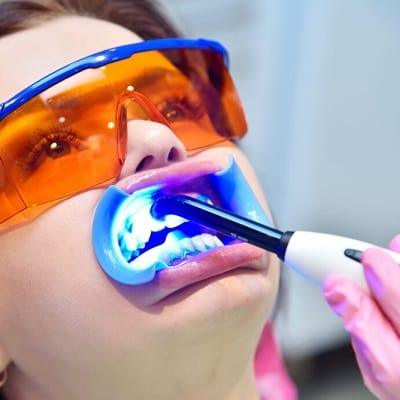People’s pursuit of a whiter smile often involves investigating different teeth-whitening techniques. Strips for teeth whitening are an excellent at-home method of brightening our smiles. It is less beneficial than having a dentist or hygienist do a teeth-whitening process. However, many people use it to get white teeth. However, everyone should follow proper guidelines to utilize these strips. The most common question everyone wants to know about using this stirp is whether using teeth whitening strips everyday is safe. This blog explored teeth whitening strips in detail for your guidance.
How to Use Teeth Whitening Strips?
Comprehending how teeth whitening strips work before digging into the safety issues is important. Usually, these strips include a gel with a peroxide base that acts to whiten and bleach tooth enamel. The manufacturers precisely recommend how often and how long to use teeth-whitening strips. Comprehending and complying with these guidelines is essential for a secure and efficient teeth-whitening procedure.
How Teeth Whitening Strips Work?
Teeth whitening consists of thin plastic strips coated with a chemical that is either hydrogen or carbamide peroxide-based. When applied, the strips adhere to the tooth’s surface, enabling the peroxide compounds to seep into the enamel’s outer layer and lighten the teeth via a little bleaching process. For a few weeks, most people apply the strips every day. Although the hazards associated with tooth whitening strips may not be severe, they produce results. Therefore, it is important to know them in advance.
Is It Safe to Use Teeth Whitening Strips Every Day?
Answer to the main concern of who uses whitening strips: is it safe to use teeth whitening strips daily? The answer is no. The reasons why we should not use these strips daily are given below.
- Possible Sensitivity: Using teeth-whitening strips daily may make teeth more sensitive. The gel’s peroxide can pierce enamel, causing momentary pain. People who are already sensitive should proceed with care.
- Gum inflammation: Extended or regular usage is another factor that might cause gum discomfort. It is crucial to apply the strips exactly to the teeth without letting them touch the gums too much.
- Enamel Damage: Excessive use of teeth-whitening strips may lead to enamel damage, even though they are typically safe when used as prescribed. Increased tooth sensitivity and other dental problems may result from enamel degradation.
When using teeth whitening strips daily, there is an increased chance of sensitivity, inflammation, and damage to the enamel. It is best to adhere to the suggested frequency, usually a few times each week, to reduce any possible negative consequences.
How Often Should You Use Teeth Whitening Strips
Some people choose to use a cyclical strategy, which involves applying whitening strips for a certain amount of time and then letting them rest. This approach seeks to compromise between protecting oral health and wanting a whiter smile. But your dentist will advise you better on the frequency you should follow.
Consult with a Dentist
A dentist can provide personalized advice on teeth whitening, considering individual oral health and specific issues. They can also suggest professional substitutes for teeth whitening, such as specialized at-home kits or in-office treatments, to ensure safe and successful outcomes. Both options are crucial for maintaining good oral health.
Enfield Royal Clinic offers the best teeth whitening treatments along with many other aesthetic treatments. In addition, they also advise you on tailored approaches for your needs.
Conclusion
In conclusion, there is a fine line between safety and regular use of teeth-whitening strips. Although using these strips might be a quick and easy way to have a whiter smile, adhering to the stated use restrictions is important. Risks from regular usage include sensitivity, inflammation, and damage to the enamel. Understanding unique demands, speaking with a dentist, and considering other whitening techniques are all necessary to balance attaining desired outcomes and protecting tooth health. You may achieve a more radiant smile if you approach dental health with knowledge and dedication.










Leave a Reply